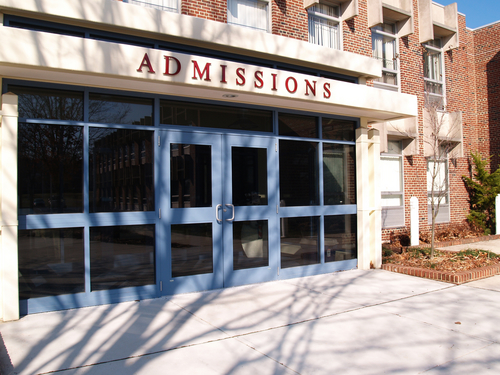|
|
As the great George Carlin noted, “It’s one big club and you ain’t in it.”
Looks like Chadwick Chesterton III may have to actually study to get into Harvard.
Chesterton is a fictitious name meant to identify one of those preppy college students who seemed to know exactly which Ivy League school he’d be attending since before he could spell Trust Fund.
But a recent report indicated that so-called “legacy admissions,” the good, old-fashioned Last Name Lottery, could be coming to an end.
The New York Times reported last week that about 14 percent of Yale’s incoming class included offspring of school alumni, which meant rich, white, and well-connected. The paper identified the trend as “legacy admissions.”
The paper reported that the U.S. Supreme Court could make “legacy admissions” more challenging for schools.
Students for Fair Admissions sued Yale, the University of North Carolina, and Harvard over their “race-conscious” admission programs.
The Times pointed out that the court has moved sharply to the right, and could overturn four decades of affirmative action precedent. The paper said Justice Clarence Thomas has already spoken out against affirmative action and legacy preference at these schools.
“If the Supreme Court outlaws affirmative action, legacy preferences will not be long for this world,” Justin Driver, a professor at Yale Law told the paper. He called legacy preferences a “little like rooting for Elon Musk to purchase a winning lottery ticket.”
The Times reported that legacy preference took hold back in the 1920s when Protestants became concerned that Catholics and Jews were taking up too many seats at these institutions of higher learning.
About 42 percent of private schools still use the procedure. Using legacy preference could be a gold mine for schools.
“I think that a lot of elite and exclusive schools feel that they have to use the legacy preferences piece as a fund-raising mechanism from alumni,” Andrew Gounardes, a state senator in Brooklyn, told the paper. He sponsored a bill that would have ended the system.
The argument in favor of the preference is that schools form a bond with families over time. Advocates say when a student is selected, the school has to consider the entire person, not just test scores.
But the tradition has come under new scrutiny and is seen as an unfair barrier for first-generation college students, many of whom are minorities.
The ACLU has called on legacy admissions to end, and noted that Harvard, to use as an example, has an average legacy admissions rate of 33 percent, which is more than five times higher than non-legacy admission rates, “while Black students comprise 16 percent of the admitted class of 2025.”
TRENDPOST: There is a famous movie scene in Rushmore (1998) when Bill Murray’s character, Herman Blume, the dry, wealthy father of sons at the exclusive Rushmore Academy, addresses the student body.
“You guys have it real easy,” he says. “I never had it like this where I grew up. But I send my kids here because the fact is you go to one of the best schools in the country: Rushmore. Now, for some of you it doesn’t matter. You were born rich and you’re going to stay rich. But here’s my advice to the rest of you: Take dead aim on the rich boys. Get them in the crosshairs and take them down. Just remember, they can buy anything but they can’t buy backbone. Don’t let them forget it. Thank you.”
Depriving young people of losing out to Chadwick Chesterton III is a disservice because they will be forced to confront the uber-privileged at some point in their work careers, and understanding how the “world works” at a young age is not a bad thing.
Because as long as Morgan Stanley, JP Morgan, Goldman Sachs, and thousands of other companies give preferential hiring treatment to children of the rich and powerful, it’s a valuable lesson on how difficult it is to compete with the privileged class.
And on the broad scope of the college legacy scale, as Gerald Celente has noted: Harvard, Princeton, Yale… Bullets, Bombs and Banks.

